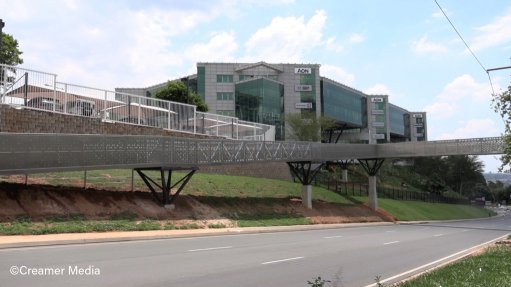The Environmental Impact of Regional Groundwater Abstraction at Mines in South Africa
This article has been supplied.
Introduction
(Virtual Showroom): Groundwater is an essential resource that plays a critical role in sustaining ecosystems and supplying the water needs of populations worldwide. However, when it comes to mining operations and activities, groundwater abstraction can have significant environmental consequences and impacts.
Scientists and Geohydrologists are uniquely positioned to study and understand these impacts on the groundwater, as they possess the expertise needed to assess the dynamics of groundwater systems and the potential consequences of the abstraction thereof. In this article, we will summarize the deemed impact of groundwater abstraction from mines on the direct environment, highlighting key issues and threats, as well as potential mitigation strategies (OpenAI, 2021).
The Process of Groundwater Abstraction in Mining
Mining operations often rely on groundwater abstraction for various purposes and practises, including dewatering of the regional water level at underground and opencast operations, dust suppression, and ore processing. The process typically involves drilling wells or boreholes to extract groundwater from aquifers located beneath the earth's surface. This extraction can lead to a range of environmental consequences, which is summarized below:
Lowering of the Water Table
One of the most immediate and direct impacts of groundwater abstraction from mines is the lowering of the water table. When water is pumped from underground aquifers, it reduces the groundwater level in the vicinity of the mine. This can result in:
Drying of Springs and Wetlands: The reduced flow of groundwater to surface water bodies such as springs and wetlands, can lead to significant reduction in water levels or even dry completely. This can harm the unique ecosystems and biodiversity they support.
Negative Impact on Riparian Vegetation: Lowered water tables can affect riparian vegetation along rivers and streams, disrupting habitat for wildlife and altering the ecology of these areas.
Subsidence: Excessive groundwater abstraction can cause land subsidence, where the ground sinks due to the compaction of sediments. This can result in damage to infrastructure, including roads and buildings. In certain geological formations, the formation of sinkholes can also be aggravated.
Contamination Risks
Groundwater abstraction from mines can increase the risk of groundwater contamination. Mining activities often involve the use of chemicals and the release of potentially harmful substances into the environment for instance, explosives. These contaminants can infiltrate the groundwater system, posing risks to both human health and the environment. Scientists and especially, Geohydrologists play a crucial role in monitoring and mitigating these contamination risks through groundwater quality assessments and remediation efforts.
Impact on Surface Water Bodies
The lowering in groundwater levels due to abstraction can also have indirect impacts on surface water bodies, such as rivers and lakes. Lower groundwater levels can reduce the baseflow that sustain these water bodies, potentially leading to decreased flow rates, altered water temperatures, and impaired aquatic ecosystems.
Mitigation Strategies
To minimize the environmental impact of groundwater abstraction from mines, it is essential to implement effective mitigation strategies:
Sustainable Groundwater Management: Implement sustainable groundwater management practices that prioritize maintaining ecological flows and preventing excessive groundwater drawdown.
Environmental Impact Assessments: Conduct comprehensive environmental impact assessments before mining operations start, to identify potential impacts and plan mitigation measures accordingly.
Groundwater Monitoring: Continuously monitor groundwater levels, quality, and potential contamination sources to detect issues early and take corrective actions.
Water Recycling and Treatment: Invest in water recycling and treatment technologies to minimize the use of fresh groundwater and reduce contamination risks.
Ecosystem Restoration: Implement restoration projects to rehabilitate areas affected by mining activities, including wetlands and riparian zones.
Conclusion
Groundwater abstraction from mines has far-reaching environmental consequences that geohydrologists must study, manage, and mitigate. By understanding the impacts, monitoring groundwater systems, and implementing sustainable practices, we can strike a balance between mining activities and environmental preservation, ensuring the long-term health of our ecosystems and communities. Collaborative efforts from industry, regulators, and environmental scientists are essential to achieve this goal.
Environmental Assurance specializes in assisting our clients to achieve environmental sustainability. This includes mitigation measurements and actions.
Article Enquiry
Email Article
Save Article
Feedback
To advertise email advertising@creamermedia.co.za or click here
Comments
Press Office
Announcements
What's On
Subscribe to improve your user experience...
Option 1 (equivalent of R125 a month):
Receive a weekly copy of Creamer Media's Engineering News & Mining Weekly magazine
(print copy for those in South Africa and e-magazine for those outside of South Africa)
Receive daily email newsletters
Access to full search results
Access archive of magazine back copies
Access to Projects in Progress
Access to ONE Research Report of your choice in PDF format
Option 2 (equivalent of R375 a month):
All benefits from Option 1
PLUS
Access to Creamer Media's Research Channel Africa for ALL Research Reports, in PDF format, on various industrial and mining sectors
including Electricity; Water; Energy Transition; Hydrogen; Roads, Rail and Ports; Coal; Gold; Platinum; Battery Metals; etc.
Already a subscriber?
Forgotten your password?
Receive weekly copy of Creamer Media's Engineering News & Mining Weekly magazine (print copy for those in South Africa and e-magazine for those outside of South Africa)
➕
Recieve daily email newsletters
➕
Access to full search results
➕
Access archive of magazine back copies
➕
Access to Projects in Progress
➕
Access to ONE Research Report of your choice in PDF format
RESEARCH CHANNEL AFRICA
R4500 (equivalent of R375 a month)
SUBSCRIBEAll benefits from Option 1
➕
Access to Creamer Media's Research Channel Africa for ALL Research Reports on various industrial and mining sectors, in PDF format, including on:
Electricity
➕
Water
➕
Energy Transition
➕
Hydrogen
➕
Roads, Rail and Ports
➕
Coal
➕
Gold
➕
Platinum
➕
Battery Metals
➕
etc.
Receive all benefits from Option 1 or Option 2 delivered to numerous people at your company
➕
Multiple User names and Passwords for simultaneous log-ins
➕
Intranet integration access to all in your organisation



















